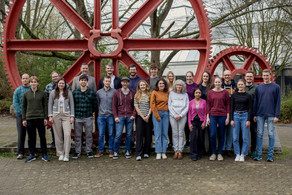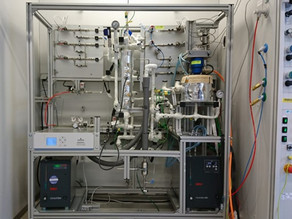Intensification of load flexible fixed bed reactors by optimal design of staged reactor setups
K. L. Fischer; H. Freund
Chem. Eng. Process. 159 (2021) 108183
Abstract
The dynamic and load flexible operation of fixed bed reactors has recently gained considerable interest for processes where large fluctuations of the feed flow rate are expected. Load flexibility poses new challenges regarding the reactor design and operation in comparison to the conventional steady state operating mode. These challenges can be managed by a more conservative reactor design, but it creates a performance gap between conventional and load flexible reactors. The intensification of load flexible wall-cooled fixed bed reactors is approached using the methanation of carbon dioxide as case study. An optimization problem is formulated which bases on the simultaneous optimization of the reactor design and several steady state operating points within a desired load range. The identified staged reactor setup with a catalyst dilution profile tolerates large variations of the flow rate up to 80 % and shows a significant improvement of the load flexible reactor performance. A considerable potential of a split and bypass of the feed stream to other stages is identified, which enables an adaption of the axial flow field according to the current load level. The feasibility of the identified setup for the dynamic operation is successfully verified by dynamic simulation of different operating scenarios.




